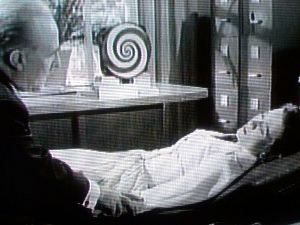Crime Scene Investigation

Crime scene investigation in forensics collects, identifies, documents and preserves evidence left at a crime scene. Crime scene investigators use this information or evidence to present to courts during trials. Crime scene investigators are required to understand different topics such as science, math and law and must apply their knowledge at the field investigation site. There are different positions in this part of forensics such as crime scene technician, crime scene analyst, and evidence technician.
Forensics in the Laboratory
There are different areas of forensics science to include biology, entomology, pathology, toxicology, odontology, meteorology, and geology. Forensic biology deals with DNA analysis of bodily fluids. Forensic entomologists determine time and location of death by examining insects found at the scene and in the body. Forensic pathologists determine the cause of injury or death, forensic toxicologists investigate and identify poisons, chemicals or drugs found in the body. Forensic odontologists examine teeth. Forensic geologists investigate evidence found in soil or minerals and forensic meteorologists analyze weather patterns or conditions at the investigating site.
Forensic Accounting and Economics
Forensic accounting and economics deals with evaluating accounting evidence and interpreting evidence related to any financial damage. Examples can include benefits, business losses, household values and medical costs. Specialist in this field compile information to effectively communicate to courtroom. In addition, these specialist are trained to look apply the financial situation to the reality of the investigation.
Criminalistics
Criminalistics

Criminalistics are forensic specialists who gather, analyze and interpret evidence. For instance they gather and identify physical evidence such as fingerprints, footwear, tire tracks, weapons and trace evidence to recreate a crime scene and link a suspect to a victim. This evidence is then gathered in reports or presentations for trials and hearings of an investigation.
Forensic Psychology and Psychiatry
Forensic psychologists and psychiatrists

Forensic psychologists and psychiatrists evaluate suspects for possible mental illnesses for the purpose of presenting this evidence to court. It also involves understanding the applicable laws and jurisdictions to make legal evaluations or diagnoses. In addition, forensic psychologists and psychiatrists testify in court about their findings during criminal investigations.
Forensic Anthropology
Forensic anthropologists

Forensic anthropologists recover and identify human skeletal remains for use in a criminal investigation. Forensic anthropologists work together with other forensic scientists such as pathologists and odontologists, as well as homicide investigators to identify remains and determine foul play and the time span of death.
Niciun comentariu:
Trimiteți un comentariu